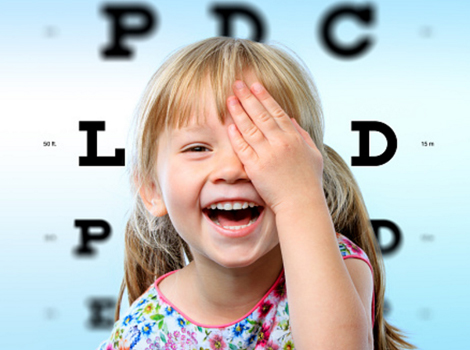Eye Care

Comprehensive Eye Exam: Your Eye Health Depends on It
Comprehensive and routine eye exams are an essential component to maintaining good health. An eye exam with Dr. Annie Nguyen will allow her to monitor your vision, assess for eye disorders and recommend appropriate treatment.
Everyone can benefit from a comprehensive eye exam. Adults should have their eyes checked by a professional as necessary to check for early indications of eye disease, and to ensure the health of their vision for life. Children should be examined to ensure proper vision development as they grow into adults.
As part of a typical eye exam at our Ottawa clinic, a patient can expect the following:
- Thorough measurement of your driving, computer and reading vision to determine whether you are a candidate for glasses, contact lenses or laser surgery.
- Recommendations regarding the type of corrective lenses and glasses that will enhance your work performance and meet your lifestyle needs.
- Measurement of eye co-ordination, depth perception and field of vision.
- Pupil and optic nerve function assessments.
- Detection of the early signs of surface eye conditions such as keratoconus, pterygium and dry eyes.
- Detection of internal eye diseases that can slowly rob you of your vision such as glaucoma, cataract, macular degeneration and diabetic retinopathy.
- Lifestyle and nutritional recommendations for protecting and maintaining your precious vision.
- Discussion of your health and family health history to customize a plan for protecting the future wellbeing of your eyes.
- Prompt referrals to specialists when necessary.
- Enrolment in our healthy eye monitoring recall program.
Are you due for an eye exam? Contact the friendly Dr. Annie Nguyen at her office in Ottawa today.
Common Eye Conditions and Diseases
-
Cataract
Cataracts are areas of clouding in the eye's lens (positioned behind the iris and pupil), which is clear in younger eyes. Cataract is an aging process so that everyone eventually gets cataract in our life. Cataract is the leading cause of avoidable blindness in developing countries. -
Diabetic retinopathy
This is a complication to the eye from diabetes. The condition could develop in anyone who has type 1 or type 2 diabetes. The longer you have diabetes and the less controlled your blood sugar is, the more likely you are to develop this eye complication. Diabetic retinopathy involves the abnormal growth of blood vessels in the retina (the back of the eye). At first, diabetic retinopathy may cause no symptoms or only mild vision problems. However, it can lead to permanent loss of vision if left untreated. -
Dry eye
A common condition, dry eye occurs when the tears aren't able to provide the eyes with proper lubrication necessary for comfort and good quality vision. There are many treatment options available to manage symptoms and provide relief. -
Glaucoma
Glaucoma is a painless disease that damages the optic nerve without patient'.(missing words). Glaucoma occurs when the pressure in the eye raises due to either poor fluid circulation or increase in the fluid production ( intraocular pressure is the pressure within the eye and is not our blood pressure). The risk to get glaucoma increases in patients over 40, and can eventually progress to blindness if left untreated. -
Macular degeneration
Also known as age-related macular degeneration (AMD), this condition occurs when the macula, a small but very important area in the centre of the retina, deteriorates or breaks down. It is one of the most common causes of vision loss in patients over 65. -
Pink eye
Pink eye, alternatively referred to as Conjunctivitis, is a common inflammation of the conjunctiva or thin clear layer that covers the white part of the eye. Pink eye can either be bacterial, viral, or allergic. Viral conjunctivitis will often clear up on its own after 7-10 days, while bacterial conjunctivitis will generally require prescribed antibiotic eye drops or ointment to resolve. -
Retinal tears/ detachment
Retinal detachment (or amotio retinae) occurs when the eye's retina peels away from the supporting tissues beneath it. This condition needs urgent action to seek treatment (within 24 to 72 hours). If delay treatment, the disorder can lead to permanent vision loss and blindness.
Carling Optometric Centre is a full-scope optometric practice, which offers complete eye care for the entire family. At our Carling Optometric Centre, we treat patients like family. Your eye health and overall satisfaction is our priority. Our doctor provides services in English, French and Vietnamese.